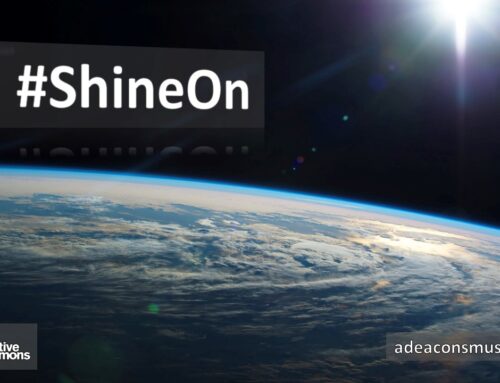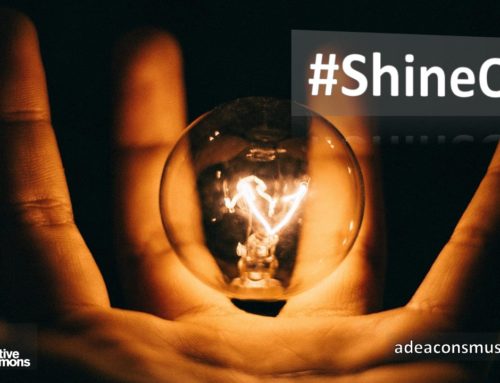How do we make sense of this last week? The violence caused by a “Lone Wolf” in Las Vegas and a “Terrorist” in Edmonton once again highlights the growing reality and sense of collective dis-ease. As I pen this musing, in both cases, law enforcement and the media are keenly focused on unearthing the motive, the reasons, the whys to make sense of what simply cannot make sense.
What does that mean you might ask? We are inundated with words like “evil,” “psychopath,” “lunatic,” “madman,” “them” and “those people,” to such an extent that, even should there be some truth in such charges, they have become meaningless rhetoric that simply serves to remove us from any capacity for self-reflection and leaves us limited to only grieving. This grieving is continual, it seems, and some might even helpfully observe we are exhibiting more and more a collective shock, even trauma, to ongoing violence that defies simple answers.
In this place of grieving, the victims and their families, the survivors of the violence and those who witnessed must be first to receive our care, love and support. Prayers and actions that extend from places of faith, whether intellectual or belief-based, begin to help transition into the long journey toward healing. Healing, in the presence of trauma, means life will never be the same, but hopefully whatever ‘new’ looks like includes some kind of letting go and beginning anew.
And, I would suggest, we need to critically ask difficult questions about how we continue to isolate and individualise those who act in ways that we do not think makes sense. I would further offer that if we assign the acts to a single individual, it will, in fact, never make sense. Now before I continue, I am not suggesting that those who act with such violence are removed from choices made and the harm caused. I am, however, provocatively comfortable to propose that we have been and are collectively distancing ourselves from awkward conversations that would/do require us to look into the mirror.
Perhaps the following words from the mystic Thomas Merton, which he shared just two days before his death in 1968, might help us to begin to peer into the looking glass:
The whole idea of compassion is based on a keen awareness of the interdependence of all these living beings, which are all part of one another, and all involved in one another.
For Christians, this is often captured by the metaphor of the body. The metaphor of the body, when understood literally, requires recognising that as a global species how we relate to one another affects both our particularity and generality. What I do here, in Winnipeg, has a ripple effect to someone on the other side of the globe. Some call this the butterfly effect.
Another Christian metaphor that helps me begin to make sense of this last week is that we are all kin. In the Hebrew Scripture, Cain, as he is being questioned about the murder of his brother Abel, asks the Holy, “Am I my brother’s keeper?” The resulting story clearly indicates that yes, indeed, we are so intimately connected that we have responsibility to one another and for one another. When, therefore, we acquiesce our collective responsibility in such heinous and morally reprehensible acts in Edmonton and Las Vegas to be solely possessed by the individual, we disregard Merton’s wisdom that we are interdependent upon one another.
That there is a sense of collective dis-ease is apparent in my day-to-day vocational journeying. Whether that is in safe places where tears are shared about the unfathomable reality of nature’s awful power, as experienced in climate change, or when anger and outrage is shared about the harm we are causing one another, there is disquiet in our soul. If we are interconnected, as Merton observed, then the very words we use corporately inform the well-being of our spirit, individually and collectively. I think also that it goes without saying that the words that have been dominant in our public discourse for the last two years have not fostered our well-being. Rather, they have sown festering wounds that affect us.
If we continue to hold on to the idea of interconnexion, then these hurtful words will affect us. When the body becomes ill, it begins to behave in ways that are not necessarily good for it. If we want to make sense of this week, therefore, I wonder what it might look like if we began to pray and demand that those in leadership, whether the foreperson with tradespeople, officers with soldiers, pastors with flocks and politicians with citizens, took seriously the power of the words we use.
If words are utilised to polarise and divide, then that is what they will do. They will weaponize and fester. If we use words informed by compassion, then perhaps understanding and care might bloom. This is not easy work – this mortal coil we travel can be hard slugging. Whether we help one another or impede ourselves, is ultimately a choice to which I hope we awaken. In the interim, may we pray for those suffering violence’s presence and for those for whom dis-ease clouds love’s presence with hate’s fugue.
How we long
for certainty
explain this
account that
so protect us
from fear’s discord
Yet ambiguity’s tears
hands tender held
Grace abides
Inspired by questions that have no answers …
#MicroPoetry











Your reflections are most welcome!